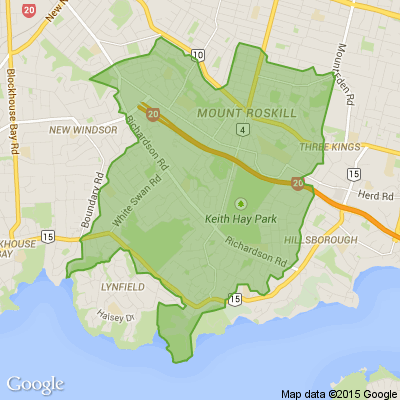Why so many New Zealanders are moving to Australia
We caught up with people who made the move to Australia to ask how they've found it – and whether anything would make them come home.
Steve* had heard the stories. He knew many New Zealanders were taking the plunge and heading across the Tasman. Still, the publicist and musician was sceptical about how good moving to Australia really could be. "I was definitely nervous," he says.
In May, Steve and his fiancée packed up their things, left Tāmaki Makaurau and made the move to Melbourne. Five months on, they have no regrets. "I'm almost having to stop myself becoming an Australian evangelist," he says. "It is so, so good."
They didn't know it at the time, but the couple have become part of a mass exodus, as record-breaking numbers of New Zealanders leave Aotearoa in search of more money, better opportunities and improved lifestyles overseas.
For Steve, he says almost everything he'd heard from others making the same move has come true. "It's awesome," he says. "I have no regrets."
'It’s day and night'
==============
A Consumer NZ investigation, published in May 2024, asked New Zealanders from all walks of life living in Australia how they had found their move. They told us they were enjoying cheaper property prices and rent, reduced living expenses, including cheaper food, transport and energy costs, and higher wages. Statistics backed this up.
Steve says he's already reaping the benefits of a much cheaper lifestyle, especially when it comes to food. "It's day and night," he says. "We've got this amazing Greek supermarket and we fill up two massive bags of fresh produce and it will be A$20 (NZ$22) ... Halloumi is crazy cheap."
The pair have found their transport costs have gone down too. With two trams and a bus stop near their home in Thornbury, just a short ride outside of Melbourne's central city, they have no need for a car. "You can get anywhere you need to go really easily," he says. "You can tram anywhere you need to go."
The only downside they’ve experienced is the demand for rental properties. While looking for their two-bedroom apartment (which costs them $A550, or NZ$605, a week), they attended open homes with queues of up to 30 people.
Other than that, the move has been entirely positive. Steve’s partner has been able to advance her career, and he’s enjoying more opportunities for his musical ambitions.
What the statistics say
==================
According to new data from Stats NZ, more people are leaving Aotearoa than ever before. Between August 2023 and 2024, 134,300 residents left the country, which is “provisionally, the highest on record for an annual period”.
The latest provisional statistics on those moving to Australia also remain high, with 28,600 New Zealanders departing for Aus between March 2023 and March 2024.
Why are they going? In May, Consumer spoke to Johanna Smith, who runs the website movingtoaustralia.com. She blames the exodus on variables people have always left Aotearoa for: a search for higher wages, a lower cost of living and more affordable homes.
“You've always been able to afford to buy a home in Australia, and that has not been a reality for the majority of New Zealanders for years,” she said. “Now that the food and the petrol is so high as well, it has definitely made people think, 'Oh flip, maybe I should actually do it.'”
Consumer’s Sentiment Tracker survey data from July backs that up. When asked how confident they were in our economy over the next 12 months, 39% of respondents reported feeling “pessimistic” or “very pessimistic”, while only 26% were optimistic.
Another 37% anticipated their savings would decline in the following year , while only 27% believed their savings would increase. And, 31% reported their standard of living had declined, while just 18% thought their standard of living had improved.
What about those we spoke to last time?
================================
In New Plymouth, Jose Litre, along with his wife Julieta, their son and their dog Rollie had struggled to save for a trip back home to Argentina, despite earning good salaries. So, 2 years ago, they moved into a near-new four-bedroom home in South Australia that cost them A$500,000 (NZ$551,888)
When Consumer catches up with Litre, he’s in Argentina, finally making his first post-Covid trip back home. Their circumstances have changed: his wife is studying after losing her job, but Litre says they’re still able to live comfortably on his income.
“We're very happy with our decision,” he says. “Our son is excelling at school, which is just a 15-minute bike ride from our home. The area we live in, about 30 minutes north of Adelaide, is growing rapidly with new homes and businesses being developed. The economy seems to be booming here – shopping centres are busy, and people continue to spend despite the rising cost of living and interest rates.”
Litre’s colleagues share stories about how hard it is to find a rental property, backing up Steve’s claim that demand is high. And he says the cost of living has increased over the 2 years they’ve been in Australia. “Overall, our circumstances are good, but I don’t want to give the impression that everything is perfect,” he says.
When Consumer last spoke to Amy Potter, she’d just lost her job in Australia as a publicist for a video game company . At the time, she admits a conversation came up about moving back to Aotearoa. It was quickly nixed. “At the end of the day I have bought a house, and now have a dog too, here in Australia and it would not be a good time to sell with the market and economy where it is.”
She also wanted to stay working in the video game industry. “There were still 10-times the opportunities in Australia than I was seeing listed in New Zealand in my industry,” she says. “The scale of Australia is just more conducive to opportunities than New Zealand within the video games space.”
Potter soon found a new job, working for New Zealand-based game asset publisher Synty Studios. The company lets her work from Sydney, and she’s very happy with her decision to stay.
Smith says that’s a new trend she’s noticed over the past few months, with New Zealanders taking their jobs with them when they move to Australia. “I’m definitely still busy [with inquiries],” Smith says. “I'm getting more enquiries from visitors who are planning on moving to Australia while continuing to work for their New Zealand employer.”
‘We're definitely here for good’
========================
In Melbourne, Steve says their move has been so successful he’s about to make it permanent. He’s considering applying for residency, and “closing my New Zealand bank account”. He says, “We’re definitely here for good.”
But there’s one thing he does miss, something that many who have made the move say: his friends and family. A recent visit from his parents helped soften the blow, and he and his partner will return to Aotearoa in January for their wedding.
“If I didn't have that thing coming up that would feel more distant and more sad,” he says.
==========================================
www.consumer.org.nz...
=========================================
CLOSES 31 DECEMBER 2024 To Win $20,000 Flooring Makeover
You could receive $2,000 + GST from the RhinoKids Flooring Fund to give your space a fresh new look.
Plus, one lucky organisation will win a $20,000 flooring makeover!
Is the flooring at your school, early childhood, community, or sports centre old and threadbare? Or perhaps you have a new space where there’s no flooring at all. Apply Now
Carpet Court is continuing its mission to help improve Kiwi kids’ learning environments by rolling out its nationwide fund for the fifth year in a row.Apply today Closes 31 December 2024

New Year's Eve at The Terraces
Celebrate the start of a new year in style at The Terraces Restaurant. Indulge in a culinary journey with our exquisite New Year's Eve dinner menu, featuring a delectable selection of dishes from amuse-bouche to dessert.
From fresh seafood to tender beef, our menu caters to all tastes.Don't miss out on the festive atmosphere and live entertainment.
$88.00 per person - Last dinner booking: 8:30 PM. Check out the menu and book your table now!

On the range
Venetian plaster finishes are on-trend at the moment, so why not recreate this look at home and cover that unsightly rangehood at the same time? Find out how to create your own with Resene Sandtex and these easy step by step instructions.







 Loading…
Loading…








